by LAUREN CODLING and NADEEM BADSHAH
PAKISTAN’S new leader Imran Khan is said to be reviving ties with India by reportedly inviting prime minister Narendra Modi to his inauguration ceremony next week.
Khan will take oath as prime minister next Saturday (11) following his party Tehreek-e-Insaf (PTI)’s win in Pakistan’s general elections last Wednesday (25).
Modi called Khan on Monday (30) to congratulate him and both leaders discussed regional peace.
The Indian leader “reiterated his vision of peace and development in the entire neighbourhood”, Modi’s office said.
Relations between the neighbours have frayed in the last couple of years, with direct talks stalled amid diplomatic rows and military firing across the Line of Control that divides Kashmir.
Modi “expressed hope that democracy will take deeper roots in Pakistan”, a statement from India’s ministry of external affairs on Monday said.
Khan, 65, declared in his victory speech that he wanted to resolve the long-standing territorial dispute over Kashmir, saying “if India comes and takes one step towards us, we will take two”.
Khan’s media team added that he had told Modi it was vital both countries focus on pulling millions of their citizens out of poverty.
His PTI party triumphed last week, defeating Nawaz Sharif’s Pakistan Muslim League-Nawaz
(PML-N), but fell short of a majority.
Khan is seeking a coalition alliance with the Muttahida Qaumi Movement (MQM), Pakistan Muslim League-Quaid (PML-Q) and regional groups based in Balochistan and Sindh, party spokesman Fawad Chaudhry said on Monday.
“We currently have the backing of 168 members including coalition parties and the reserved seats for minorities and women. We are in talks with more independent candidates who will join us in the coming days,” he told journalists in Islamabad.
Three major political parties including Pakistan Muslim League Nawaz (PML-N) and Pakistan
People’s Party on Monday announced they would form a grand opposition in parliament.
Among Khan’s biggest challenges are fixing the economy with foreign currency reserves
dwindling and the rupee devaluing four times since December, as well as working with opposition parties in a coalition and building relations with neighbours including India and Afghanistan.
India blames Pakistan for stoking the revolt in Kashmir and the Modi government has refused talks unless Islamabad acts against militant groups operating from its soil against India.
Pakistan has criticised India in recent years about what it calls New Delhi’s heavy handed tactics in Kashmir, as well as violence suffered by the Muslim-minority groups in India at the hands of Hindu extremists.
India’s foreign affairs ministry did not directly comment on Khan’s call for talks, but said it welcomed that “the people of Pakistan have reposed their faith in democracy through general elections”.
“India desires a prosperous and progressive Pakistan at peace with its neighbours,” the statement said.
The PTI said Khan also told Modi that issues between the two nations must be resolved through talks. “Wars can breed tragedies instead of facilitating resolution of conflicts,”
he said, according to a PTI statement.
In the UK, British businessman and community leaders congratulated Khan on his victory, stating the result has induced hope within the nation.
Pakistan-born entrepreneur Mo Chaudry, founder of the Waterworld, M Club Fitness and MIC Properties, told Eastern Eye that he was encouraged by the results.
“I have global business interests, and as a Pakistani-born British businessman I am encouraged to invest, to grow and develop businesses in Pakistan to create commercial opportunities and employment,” he said on Tuesday (31). “If the opportunity arose, I would like to play a commercial role in Pakistan.”
Chaudry, who also acts as the group chair of Congleton-based health and leisure business Pulse Group, added Khan’s election was a “breath of fresh air”.
“We have a new, popular voice of someone who has credibility and who is being given the opportunity to make a difference to people’s lives,” Chaudry, who has philanthropy projects in Pakistan, said. “It is refreshing, there is hope.”
Dr Rami Ranger CBE, the chairman of the Pakistan, India & UK Friendship Forum, said it was a “positive” development the elections had taken place peacefully without military involvement.
“The mood in [Pakistan] is positive,” he told Eastern Eye. On what Pakistan can expect from their new leader, Dr Ranger believes it will be a “clean government” dedicated to serving its people.“Khan joined politics with a conviction to bring about change and bring an end to bad governance and live up to his commitment,” Dr Ranger said.
British Pakistanis also believe the former cricketer’s win marks “a new dawn” after a strong turnout from women and younger voters at the polls.
Pakistani women in the district of Upper Dir near the border with Afghanistan headed to the polls for the first time since the 1970s due to previous claims that violence at polling booths made it too dangerous for them to cast their ballots.
According to reports, there were more than nine million new female registered voters in Pakistan for the election.
Amjad Malik, a solicitor in Rochdale, Greater Manchester, and chairman of the Overseas Pakistanis Foundation, told Eastern Eye the overall voter turnout was “promising”.
“[It] is a good omen for democracy,” Malik said. “Women participation was exemplary,
especially in Khyber Pakhtunkhwa and the tribal belt.”
However, he noted it was sad to see the exercise of elections marred with delays in counting and failure by the computerised system.
“Pakistan lost another opportunity to seek smooth transition where opposition accept the results and welcome it,” he said.
He noted Khan would have many internal and external challenges.
“From keeping finances intact, wooing opposition and having friendly relations,” he said. “The first 100 days will tell the tale of his time to come, [there are] interesting days ahead.”
Zahra Shah, CEO of the British Pakistan Foundation, told Eastern Eye: “We hope he will usher in a new era of peace and prosperity in Pakistan, and we will do our best to support him in this mission.”
He added the British Pakistani community felt Khan could bring positive change in the country.
“He has already implemented some positive changes in The North-West Frontier Province under his party’s leadership, and also he has a good track record with running Pakistan’s first cancer hospital for the poor,” Shah explained.
Previously Khan has opened two cancer hospitals – including the Shaukat Khanum Memorial Cancer Hospital and Research Centre in 1994, which is the largest cancer hospital in Pakistan.
Shaukat Warraich, founder of the Imams Online network which uses Islamic teachings to counter terrorist messages, said Khan’s close ties to the UK provided optimism for a “flourishing relationship between our two countries in the coming years”.
“He has a unique opportunity to turn the aspirations of the Pakistani people of prosperity
and peace into a reality.”
Abbas Nasir, a former editor of Pakistan’s English language newspaper Dawn, believes the new president needs to deliver on his promises on creating jobs and building new homes.
He said: “In his campaign for a “Naya (new) Pakistan”, Khan pledged to create 10 million new jobs and build five million homes for the poor if elected to power.
“He claimed that affluent overseas Pakistanis who, he said, have promised him to bring in billions of dollars in investment and expertise to rebuild the country.
“As the country’s new elected leader, he will now be expected to deliver on all of these promises.”
British foreign secretary Jeremy Hunt said the UK and Pakistan have enjoyed a long-standing partnership, drawn together by “strong links” between citizens.
“We look forward to continuing our work with the new federal and provincial governments. The people of Pakistan can be certain of UK support to build the democratic, secure and prosperous future they deserve,” Hunt said.
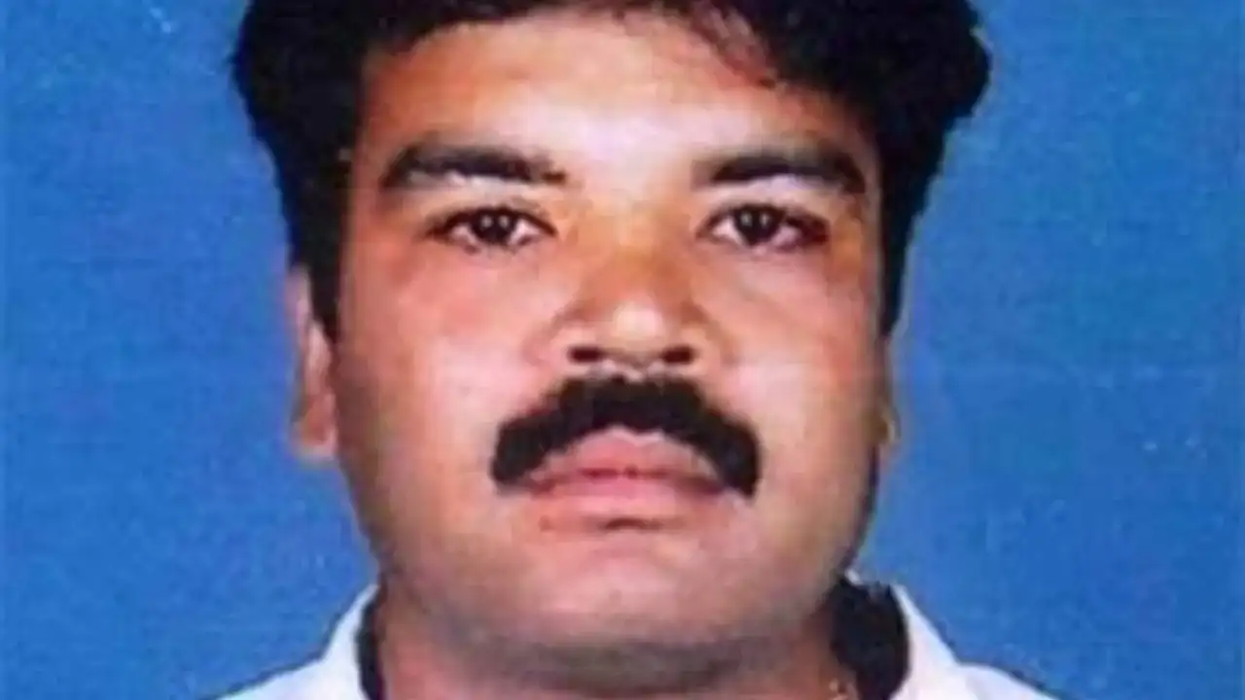
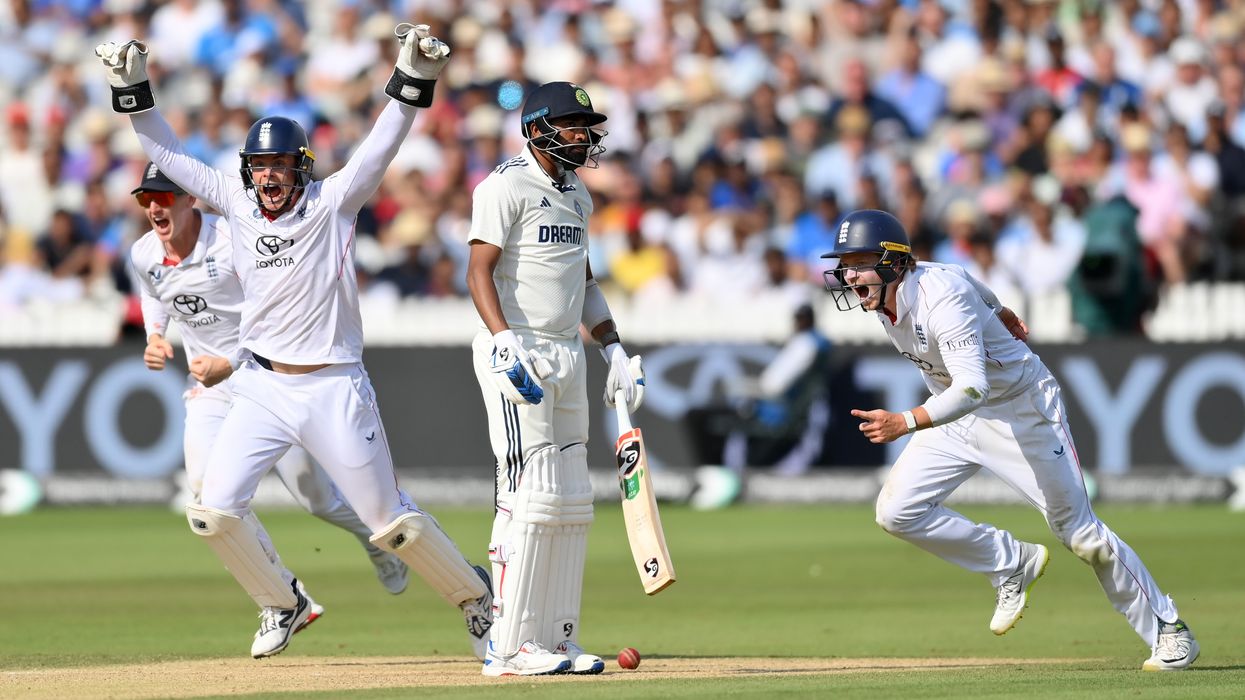














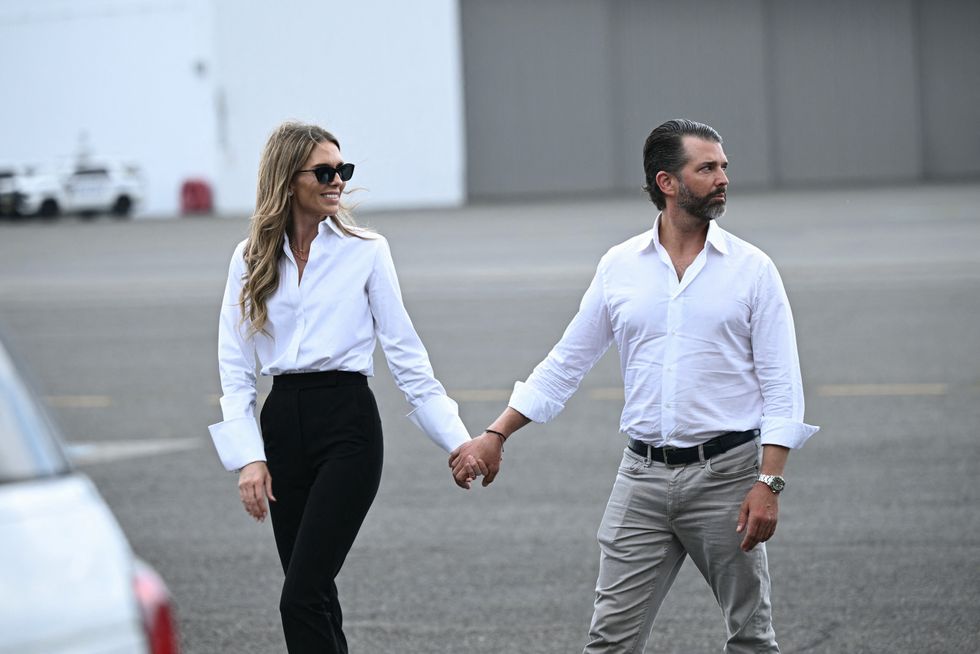 All eyes on Donald Trump Jr and Bettina Anderson as their PDA grabs attention before Trump’s arrivalGetty Images
All eyes on Donald Trump Jr and Bettina Anderson as their PDA grabs attention before Trump’s arrivalGetty Images  Donald Trump Jr and girlfriend Bettina Anderson steal the spotlight with PDA at New Jersey airportGetty Images
Donald Trump Jr and girlfriend Bettina Anderson steal the spotlight with PDA at New Jersey airportGetty Images 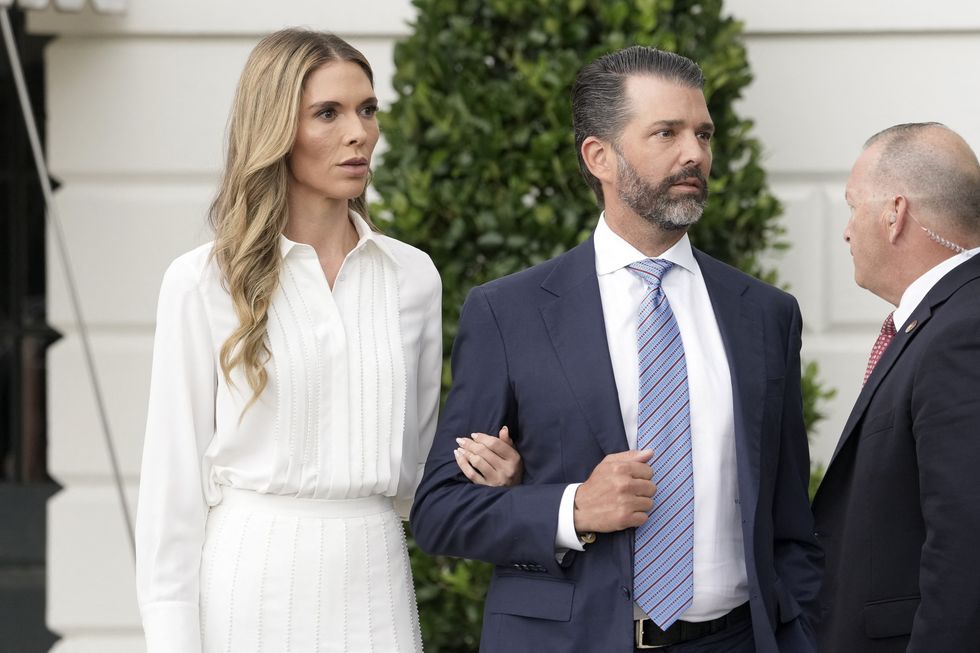 Donald Trump Jr. and Bettina Anderson depart the White House to attend the Military ParadeGetty Images
Donald Trump Jr. and Bettina Anderson depart the White House to attend the Military ParadeGetty Images 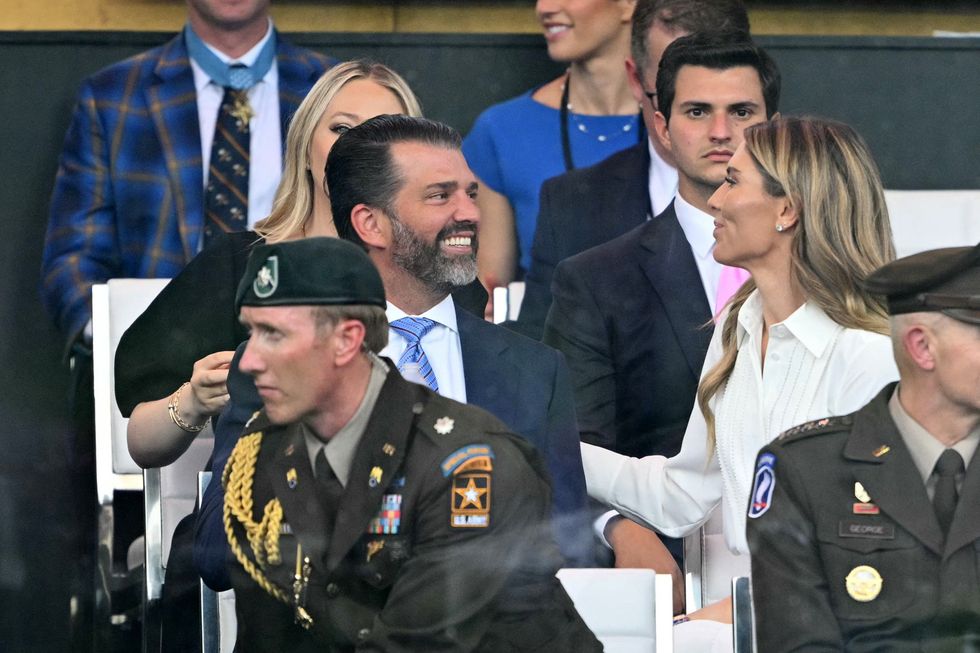 Bettina Anderson and Donald Trump Jr spotted in a candid moment Getty Images
Bettina Anderson and Donald Trump Jr spotted in a candid moment Getty Images 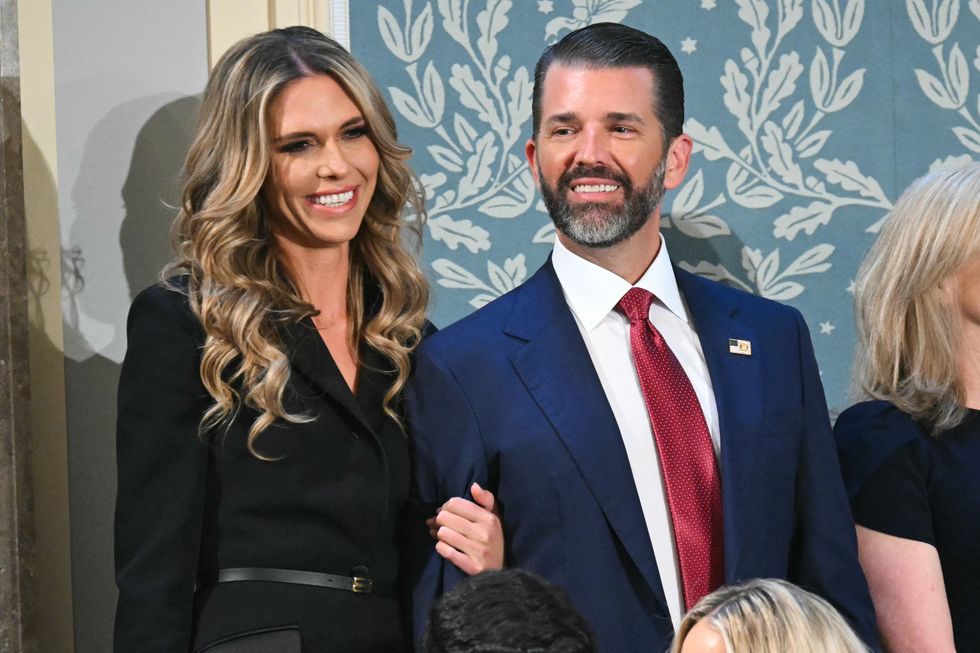 Donald Trump Jr. with Bettina Anderson ahead of US President Donald Trump's addressGetty Images
Donald Trump Jr. with Bettina Anderson ahead of US President Donald Trump's addressGetty Images 
